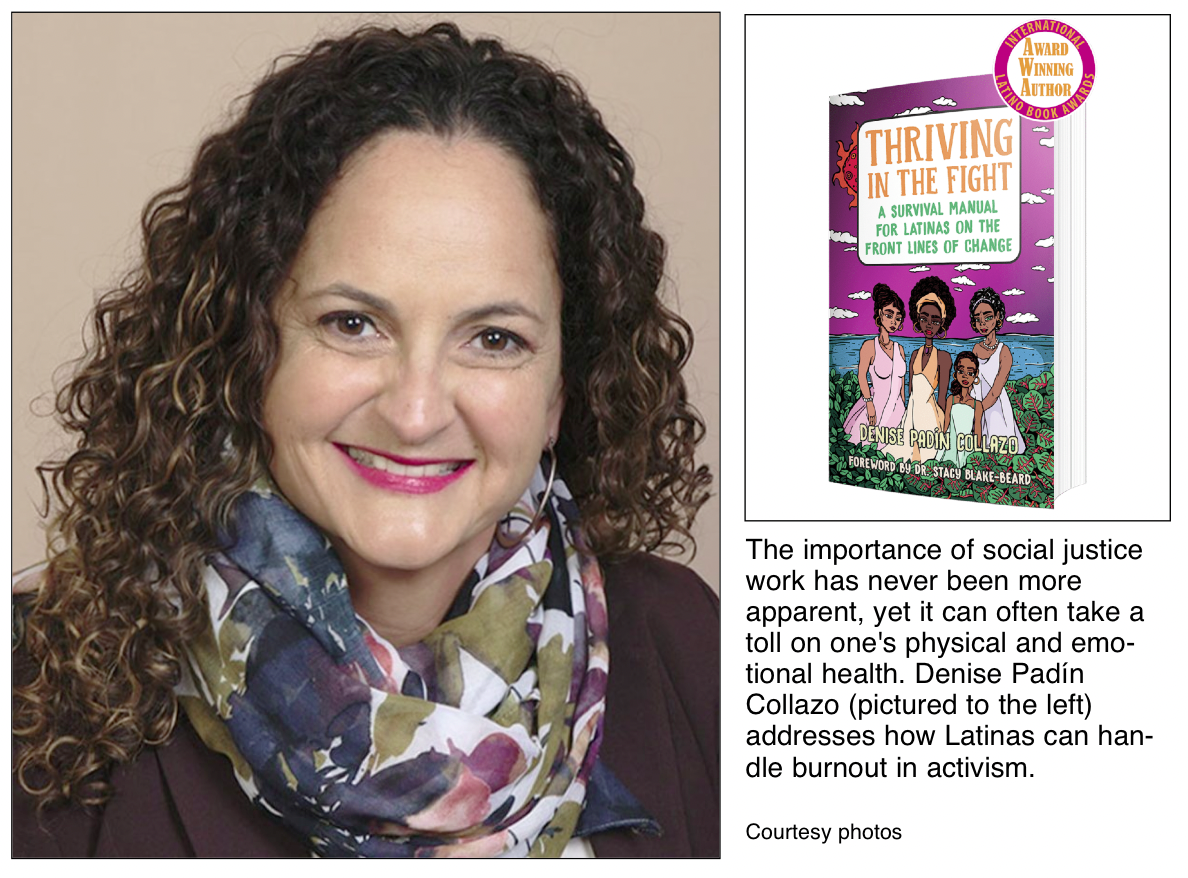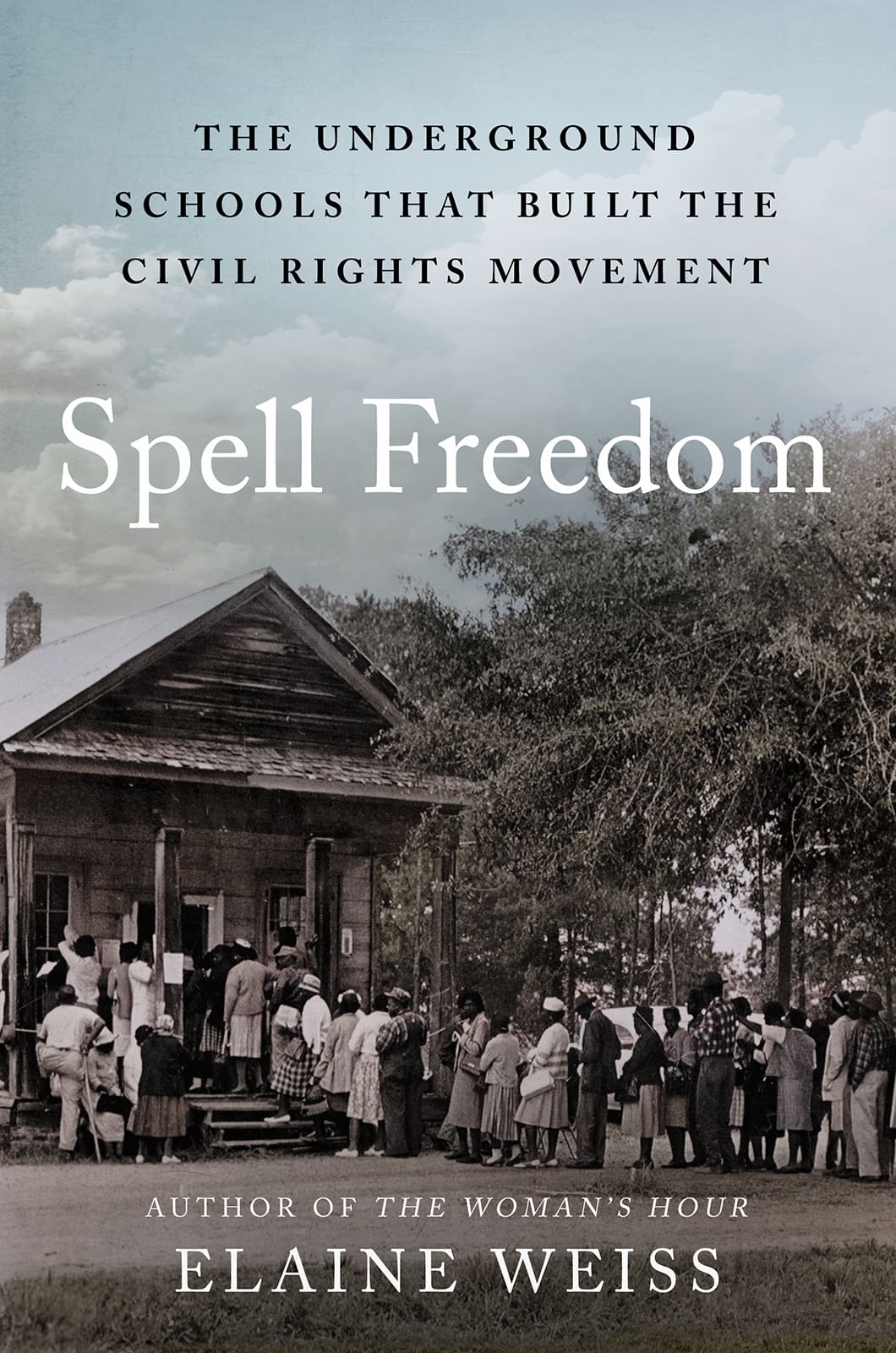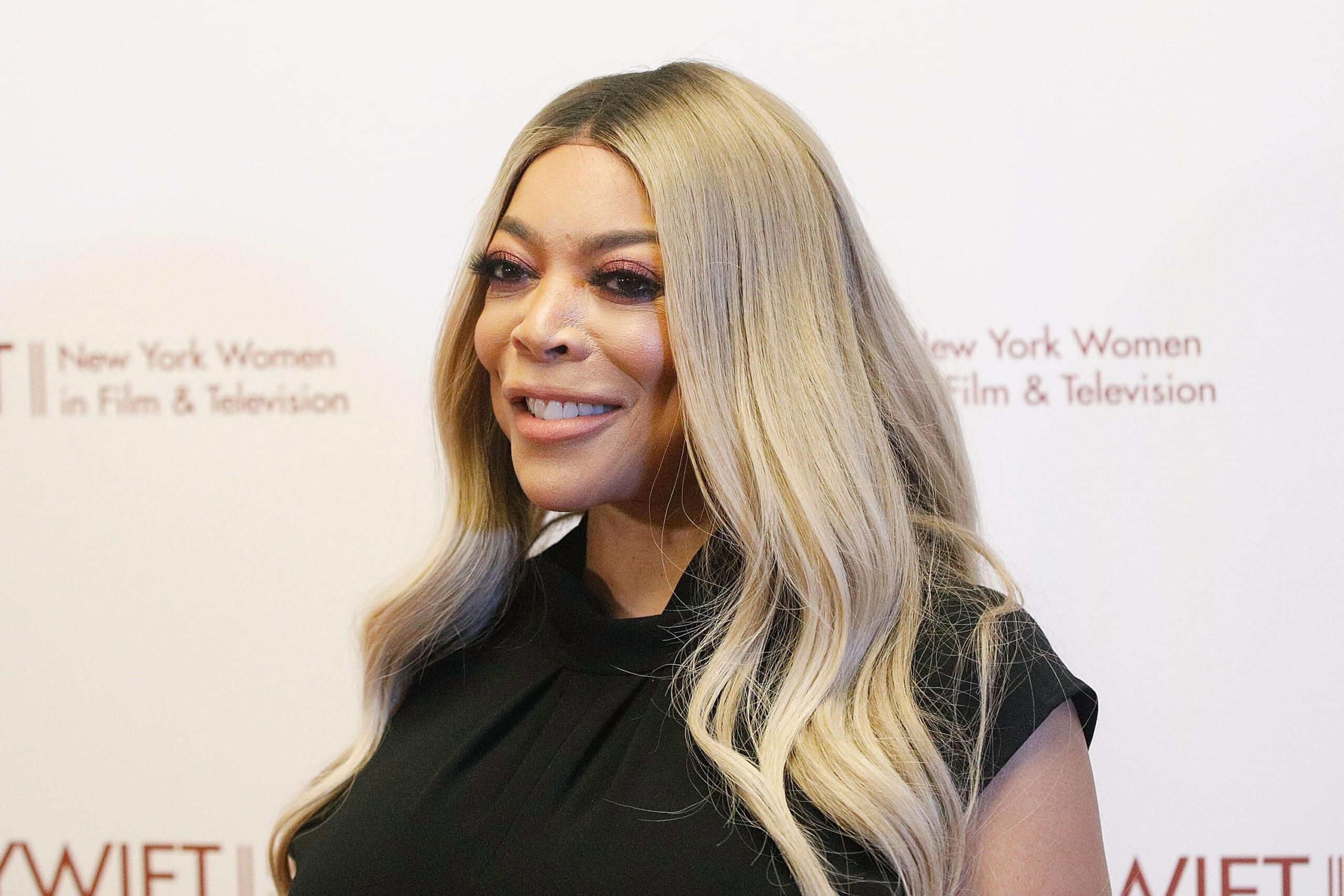The importance of social justice work has never been more apparent, yet it can often take a toll on one’s physical and emotional health. Denise Padín Collazo (pictured to the left) addresses how Latinas can handle burnout in activism. Courtesy photos
By Veronica Maria Brown-Comegys
Puerto Rican social justice leader, and mentor of women of color, Denise Padin Collazo denounces anti-Blackness in the Latinx community during her book tour. She will be in Michigan, Illinois, and Wisconsin from August 4-16 promoting Thriving in the Fight, A Survival Manual for Latinas on the Front Lines of Change. Collazo challenges Latinas to examine their background.
“I had to be brutally honest about how my culture, education, church, and family taught me anti-Blackness,” she said. “As children Latinx learn many things that are wrong,” Collazo said.
We learn “survival skills” that include ways to avoid, deny, and distance ourselves from Blackness, and from the most oppressed, according to Collazo. She examines that theme in Chapter 4: Disrupting Anti-Blackness in Your Culture of Origin.
For illustration, during the wide-ranging interview, Collazo analyzed my memories of a childhood friend, an immigrant from Panama. She came to the United States when she was ten years old. The girl was biracial and fair-skinned. Her mother was medium brown, and her grandmother was darker. One day another student called my friend “black,” and said, “I saw your mother and grandmother.” The girl ranted, “But you haven’t seen my father. I’m not Black. The one who made me was white.” Later she laughed when a dark student said, “No, you’re not an N-word.”
“That story is a perfect example of the complex racial experience of Latin American colonized thinking,” Collazo said. “I am so sorry that little girl was taught internalized racism so early on,” said Collazo.
As recently as last year a leaked audio revealed that four Latino officials made racist statements about Black and Indigenous people at a Las Angeles City Council meeting to discuss redistricting. Afro-Latinx Dr. Vanessa K. Valdes said, “Those recordings uncovered a reality of bias and prejudice that many of us are familiar with.” Dr. Valdes is the Associate Provost for Community Engagement, at City College of New York (CUNY).
The council meeting was about power and concern about scarcity of resources, according to Dr. Valdes. “Those were our relatives thinking that affiliation or coalition with African Americans is a betrayal, one that threatens their own standing, and attempts to move toward whiteness.”
Those who seek alliance should know who they are dealing with, according to Dr. Valdes. In order to become whole, the Latinx community must acknowledge its own anti-Blackness and colorism, according to Collazo.
“Who better to lead our community into this than us Latinas?” Women have led their families through unimaginable hardship, according to the activist. “Let’s apply these same gifts to leading to create that future world,” she said. Collazo envisions this “future world” will center on the leadership of Afro-Latinas, Taino, Oaxacans, and African American women.
An overwhelming number of Latinos feel anti-Latino racism is increasing, according to Collazo. The Latinx community is connecting the dots between the treatment of immigrants at the border and in the U.S., shootings of Mexicans in El Paso and Uvalde, insufficient disaster response to Puerto Rico, and government officials’ comments about “shithole” countries.
Together Black and Latinx communities comprise over 100 million people in the US a country of approximately 320 million, according to Collazo. “Imagine how strong we would be if we stood together,” she said.
Veronica Maria Brown-Comegys is a graduate of Michigan State University. She studied and conducted research for one year in Rio de Janeiro, Brazil. She is a former graduate student in the Michigan State University Department of Anthropology.




